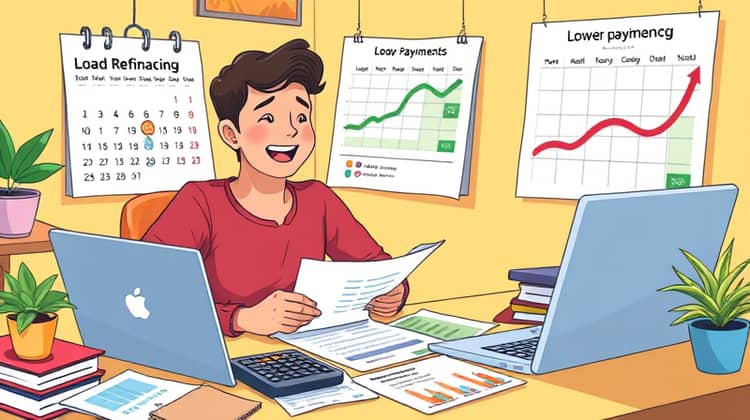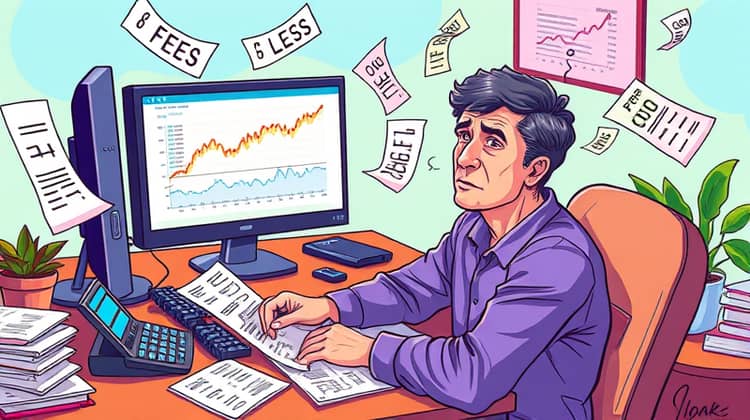Refinancing a personal loan can be a smart financial move, but it's essential to understand what it entails before making a decision. As interest rates fluctuate and personal financial situations evolve, many borrowers find themselves considering refinancing as a viable option. The question that looms large is whether refinancing is worth it in the long run.
In this blog post, we will cover the fundamentals of refinancing a personal loan, its benefits and drawbacks, the steps to take, and when it's advisable to act. By the end, you’ll have a clearer picture of how refinancing can impact your finances and whether it aligns with your borrowing goals.
What Does Refinancing a Personal Loan Mean?

Refinancing a personal loan involves taking out a new loan to pay off an existing one, usually with better terms. The primary objective of refinancing is to reduce the monthly payments, lower the interest rate, or change the loan duration. This financial strategy can help borrowers manage their debts more effectively and potentially save money.
When you refinance, you may find that your credit score, income, and overall financial health have improved since your original loan was granted, making you eligible for more favorable loan terms. However, it is crucial to analyze the overall costs associated with refinancing, including fees and potential penalties on your existing loan. This aids in determining if refinancing is the right path for you.
- Definition of refinancing
- Reasons people choose to refinance
- How refinancing works
Benefits of Refinancing a Personal Loan

Refinancing can provide various advantages for borrowers, especially when it comes to managing finances and optimizing debts. One of the most significant benefits is the potential for lower interest rates, especially if market rates have dropped or if your credit score has improved since you first took out the loan. Lower interest rates mean you'll pay less over the duration of the loan, which equates to substantial savings.
Another key benefit of refinancing is the opportunity to change the monthly payment terms. This might involve extending the loan period to lower monthly payments or opting for a shorter term to pay off the debt quicker. Ultimately, the right choice can relieve financial stress and help you regain control over your finances.
- Lower interest rates
- Reduced monthly payments
- Flexible terms and conditions
- Potential to improve credit score
Drawbacks of Refinancing a Personal Loan

While refinancing offers many benefits, it is not without its drawbacks. One significant concern is the potential fees associated with securing a new loan. Lenders may charge origination fees, application fees, and closing costs, which can quickly add up and negate potential savings.
Additionally, the refinancing process may result in a longer repayment period, which could lead to paying more in interest over the life of the loan. It’s essential to weigh these factors carefully to determine if the immediate benefits outweigh the long-term costs.
Steps to Refinance a Personal Loan

If you decide that refinancing is the right move, there are several steps you can follow to streamline the process. First, assess your financial situation and determine your goals for refinancing. This involves reviewing your current loan, understanding your debts, and analyzing how refinancing could improve your financial standing.
Next, shop around for lenders to compare rates, terms, and conditions. It’s vital to read the fine print of each offer to ensure you’re fully aware of any fees or penalties. Once you've selected a lender, you can begin the application process, during which you'll need to provide necessary documentation such as income verification and credit history.
- Determine your refinancing goals
- Shop around for the best rates
- Compare lender offers
- Complete the application process
Finally, once your application is approved, wait for the new lender to pay off your existing loan. Be sure to keep an eye on your credit score, as it may be impacted during this transition.
When Should You Consider Refinancing?

Deciding when to refinance a personal loan can be pivotal. You should consider refinancing if interest rates have significantly dropped since you took out your original loan or if your credit score has improved enough to qualify for better terms. These changes can greatly improve the overall borrowing cost, making refinancing more beneficial.
Moreover, if you're struggling with monthly payments or your current loan conditions are becoming unmanageable, refinancing can provide relief, allowing for a more structured repayment plan.
- When interest rates have decreased
- If your credit score has improved
- If you want to consolidate debt
- To lower monthly payments
Is Refinancing Always Worth It?

Refinancing is not a one-size-fits-all solution, and its worth varies based on individual circumstances. For some borrowers, the potential savings from lower interest rates and reduced monthly payments can significantly improve financial stability, making it a worthwhile endeavor. However, it's not prudent for everyone, especially if the costs associated with the new loan outweigh the benefits.
Assessing personal circumstances is crucial. Factors such as the remaining balance on your current loan, the interest rate on the new loan, and your long-term financial goals should all be considered. Additionally, potential penalties for prepaying the original loan can also impact the decision.
Ultimately, borrowers should conduct thorough research, assess their financial needs, and calculate potential savings before proceeding with refinancing. Seeking guidance from financial advisers can also provide clarity. Refinancing should offer a more favorable financial situation than simply sticking to your original loan, so make sure to evaluate all options.
In conclusion, while refinancing can be beneficial for many, it’s essential to weigh both the immediate and future implications on your finances. Knowledge is power, and understanding how refinancing affects your financial landscape can lead to better decision-making.
Conclusion

Refinancing a personal loan can be a valuable financial tool, offering potential savings and improved terms. However, it’s crucial to approach refinancing with caution and a clear understanding of its implications. Not every situation will warrant refinancing, and it’s important to evaluate whether the benefits will justify the costs involved.
By doing your due diligence and considering factors such as interest rates, fees, and your personal financial goals, you can make an informed decision that best suits your needs. Ultimately, the choice to refinance should stem from a thorough analysis of your unique financial circumstances, leading to improved control over your financial future.














